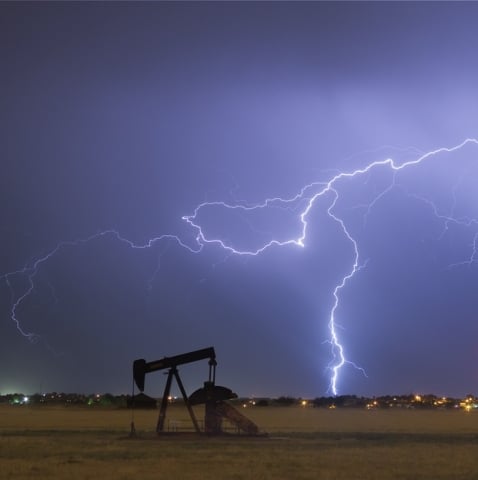Scientists affiliated with the National Oceanic and Atmospheric Administration (NOAA) have determined that oil and gas operations on Colorado’s front range are pumping almost three times more methane and seven times more benzene into the air than previously estimated.
Benzene is a regulated air toxin that causes cancer and methane is 20 to 25 times more potent than carbon dioxide when it comes to trapping heat in the Earth’s atmosphere.
Researchers collected air samples from an airplane over Weld County over two days in May 2012. Previous studies measured air samples taken at ground-level or from a 985-foot tall tower. This is the first study to measure airborne contaminants from an airplane.
Researchers found that 24,000 active oil and gas wells active in Weld County in May 2012 were emitting a total of 19.3 tons of methane each hour, or about triple the amount the U.S. Environmental Protection Agency estimated would come from industry-reported emissions.
Drilling operations emitted benzene at a rate of 380 pounds each hour, or about seven times more than the 50 pounds an hour the Colorado Department of Public Health and Environment estimated based on industry-reported data.
Researchers were able to chemically “fingerprint” emissions from oil and gas operations, allowing them to isolate drilling operations as the source of the emissions measured. They also found that oil and gas operations accounted for fully 75 percent of all methane emissions in the area.
The new study echoes findings of a previous air quality study conducted on data collected from ground sources in 2008, which also found oil and gas emissions were far higher than expected. At that time, Weld County had about half as many active wells as it does now. The previous study also found that sources other than wells, such as storage tanks, pipelines and compressors, vented or leaked about four percent of their methane contents into the air — about twice the two percent loss rate the industry had calculated.
These studies make it clear that the idea that “natural gas,” which consists primarily of methane, is a clean fuel is a myth.
Subscribe to our newsletter
Stay up to date with DeSmog news and alerts







